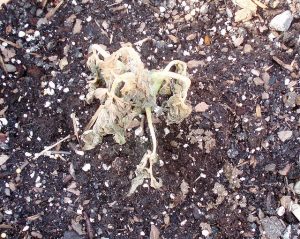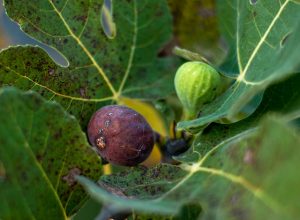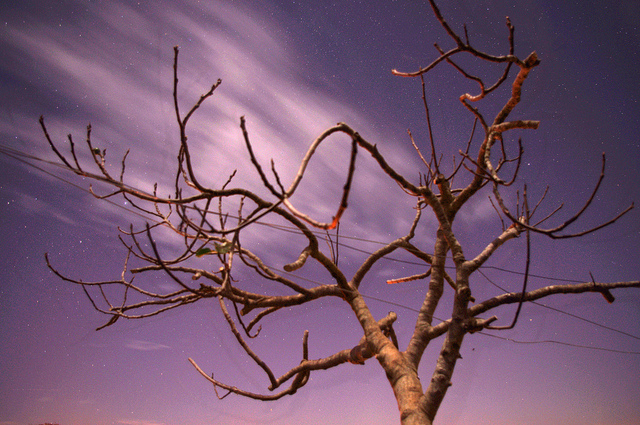Second Sunday in Lent, Narrative Lectionary, Year Three
Lessons: Luke 13:1-9, 31-35; Psalm 122 (or 122:6)
Theme: God’s faithful and generous people serve a God who is ever willing to give one more chance for faith to grow, even when humans would see no hope.
Key Scripture: He replied, “Sir, let it alone for one more year, until I dig around it and put manure on it. If it bears fruit next year, well and good; but if not, you can cut it down.” Luke 13:8-9
Preaching/Teaching Reflection
I have been known to kill a plant or two in my lifetime; in fact, some folks might accuse me of having a “brown thumb.” The truth is more that I’m easily distracted and busy, so sometimes I don’t give the poor plants the  food and water that they need to thrive. At least when I stare at the sorry shriveled remains I recognize my own role in the “fruitless” effort.
food and water that they need to thrive. At least when I stare at the sorry shriveled remains I recognize my own role in the “fruitless” effort.
Sometimes, however, a plant will thrive in spite of my lack of expertise, time, and attention, and deliver a bountiful harvest of tomatoes, basil, or other delight. When that happens, I give thanks to the Lord of the Harvest and original Master Gardener because I KNOW it wasn’t me who caused that plant to thrive. Most of the time whatever harvest that eventually happens is a lucky collaboration between my meager efforts and God’s abundance.
That’s why I’m drawn to this story from Luke’s gospel. Jesus is responding to the latest horrifying news report from Galilee where the people are trying to find some link between folks’ suffering and their sins. Jesus squelches that line of thinking immediately and segues into one of his parables. It’s about a fruitless fig tree and the owner’s indignation that it has failed to bear fruit for three entire years. He’s ready to give up on this perfectly good waste of soil and instructs the gardener to cut it down.
But wait! This gardener is one who believes in second chances. Multiple chances even! He asks to put manure around the tree to fertilize it and dig around it to aerate the soil and give the fruitless fig another chance. I wonder if he might even lobby to give it another chance next year, even though he says the owner of the vineyard can cut it down if it doesn’t produce after another year of careful care.
So what of this fig tree in a vineyard? One would expect grapes, not figs, right? In the climate of the Middle East shade is a precious commodity, so fig trees would be a logical planting at the edge of a vineyard to provide shade for the workers from the hot sun. In addition to the shade, the fig trees produce delicious and nutritious fruit. Even if this fruitless fig tree failed to bear a crop, it might still be useful for shade. To cut it down seems somewhat counterintuitive.
 Thankfully, God doesn’t give up on “fruitless folk” then or now. Jesus is clearly grieving over the city of Jerusalem and the people therein to whom he has been preaching for almost three years. He knows the city will be cut down, that he will be cut down. Most humans would have given up, but Jesus is not just any old human teacher; he is God walking around with flesh and bones and a heart filled with amazing love. The Master Gardener of our souls does not give up on us, even when others may. No one, it seems, is beyond God’s gracious grasp or cultivating skills. Even Jesus, it seems, came from a stump: “A shoot shall come out from the stump of Jesse, and a branch shall grow out of his roots” (Isaiah 11:1).
Thankfully, God doesn’t give up on “fruitless folk” then or now. Jesus is clearly grieving over the city of Jerusalem and the people therein to whom he has been preaching for almost three years. He knows the city will be cut down, that he will be cut down. Most humans would have given up, but Jesus is not just any old human teacher; he is God walking around with flesh and bones and a heart filled with amazing love. The Master Gardener of our souls does not give up on us, even when others may. No one, it seems, is beyond God’s gracious grasp or cultivating skills. Even Jesus, it seems, came from a stump: “A shoot shall come out from the stump of Jesse, and a branch shall grow out of his roots” (Isaiah 11:1).
Yes, even as we move through the season of Lent, we know that resurrection is just around the corner. From the most fruitless and impossible situations and people, God can bring about good. To my other “brown-thumbed” friends, don’t give up hope. With God, all things are possible.
In Worship
Even today Jerusalem is contested ground. This city is held as holy by all three Abrahamic faiths: Judaism, Christianity, and Islam. It is also still a place of unrest and dis-ease. Consider a temple talk about the city, especially if you have been there or have someone in your congregation who has been and who can share observations and images. Still the city persists. Still the three faiths coexist—even if not fully in peace. Still there is hope for peace to flourish from the stump of dissent. God is not through with us yet. Invite prayer petitions for peace around the world, for peace in our homes, for peace within governments, and for peace within hearts. If your congregation has planted a peace pole, find a way to gather around it either before worship or after being sent. If you don’t have a peace pole, think about installing one. Click here for more information.
With Youth
Why is peace so difficult? Invite youth to reflect on this topic through art or poetry or song. If you congregation has not installed a peace pole, make this a youth group project. Click here for more information.
With Children
Peace be with you!
Psalm 122 says “For the sake of my relatives and friends I will say, ‘Peace be within you.’ For the sake of the house of the Lord our God, I will seek your good” (Psalm 122:8-9)
Teach the children the word for “peace” in Hebrew (Shalom) and Arabic (Salaam). Note how close they are in sound and appearance. In the English transliteration both have six letters. Talk to them about what peace means. Ask them if they know. Listen to their answers. Ask them why it seems so hard to have peace. Do they have a hard time sometimes being peaceful with friends or siblings?
Remind them that Martin Luther, in his explication of the Eighth Commandment said that not only do we not tell lies about our neighbors, slander or betray them, or destroy their reputations, we are also to seek the best for them, speak well of them, and come to their defense. Sounds like a pretty good reputation for peace, doesn’t it?
Finish with a simple prayer for peace and good will. If you use a responsive prayer, invite the children to say “I will seek your good” (Psalm 122:9b).
Weekly Stewardship Bulletin Insert
This week’s gospel lesson from Luke reminds us that God does not give up on us. We serve a God of second and third and even fourth chances. The Master Gardener of this universe wishes the best for us, so we, too, should wish the best for our neighbors. This week consider how you can be a better steward of others, giving the benefit of the doubt and seeking the best for your neighbors.
Stewardship at Home
God wants us to seek the best in others, to help prepare good soil so we can grow in faith. This week make a conscious effort to put others’ needs before your own. Seek the best and look for the good in others. Pray to God to give you strength and wisdom to do so. Review Luther’s explication of the Eighth Commandment in the Small Catechism.
Photo: Jonathan Rubio H., Laura Blankenship, and Mark Bonica, Creative Commons. Thanks!
Note: Reprint rights granted to congregations and other church organizations for local, nonprofit use. Just include this note: “Copyright (c) 2017, Rev. Sharron Blezard. Used by Permission.” Other uses, please inquire: thewritelife@hotmail.com.




Leave a Reply